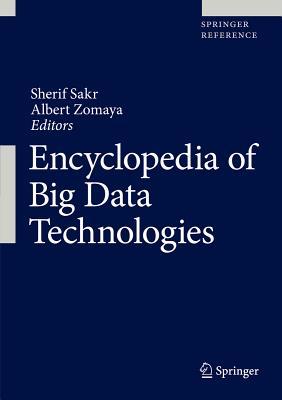

Most ebook files are in PDF format, so you can easily read them using various software such as Foxit Reader or directly on the Google Chrome browser.
Some ebook files are released by publishers in other formats such as .awz, .mobi, .epub, .fb2, etc. You may need to install specific software to read these formats on mobile/PC, such as Calibre.
Please read the tutorial at this link: https://ebookbell.com/faq
We offer FREE conversion to the popular formats you request; however, this may take some time. Therefore, right after payment, please email us, and we will try to provide the service as quickly as possible.
For some exceptional file formats or broken links (if any), please refrain from opening any disputes. Instead, email us first, and we will try to assist within a maximum of 6 hours.
EbookBell Team

0.0
0 reviews
ISBN 10: 3319320092
ISBN 13: 9783319320090
Author: Laurie A Schintler
This encyclopedia will be an essential resource for our times, reflecting the fact that we currently are living in an expanding data-driven world. Technological advancements and other related trends are contributing to the production of an astoundingly large and exponentially increasing collection of data and information, referred to in popular vernacular as “Big Data.” Social media and crowdsourcing platforms and various applications ― “apps” ― are producing reams of information from the instantaneous transactions and input of millions and millions of people around the globe. The Internet-of-Things (IoT), which is expected to comprise tens of billions of objects by the end of this decade, is actively sensing real-time intelligence on nearly every aspect of our lives and environment. The Global Positioning System (GPS) and other location-aware technologies are producing data that is specific down to particular latitude and longitude coordinates and seconds of theday. Large-scale instruments, such as the Large Hadron Collider (LHC), are collecting massive amounts of data on our planet and even distant corners of the visible universe. Digitization is being used to convert large collections of documents from print to digital format, giving rise to large archives of unstructured data. Innovations in technology, in the areas of Cloud and molecular computing, Artificial Intelligence/Machine Learning, and Natural Language Processing (NLP), to name only a few, also are greatly expanding our capacity to store, manage, and process Big Data. In this context, the Encyclopedia of Big Data is being offered in recognition of a world that is rapidly moving from gigabytes to terabytes to petabytes and beyond
A-Entries (e.g., Achieving Low Latency Transactions for Geo-replicated Storage with Blotter; ACID Properties in MMOGs; Active Disk; Active Storage; Ad Hoc Benchmark; …)
B-Entries
C-Entries and further alphabetical entries continuing through the rest of the technology terms and concepts covered in the volume
encyclopedia of big data technologies pdf
big data in information technology
big data technologies list
types of big data technologies
what are the technologies used in big data
encyclopedia of big data
Tags: Laurie A Schintler, Big, Data